1. Your Dog Takes the Best Spot on the Couch
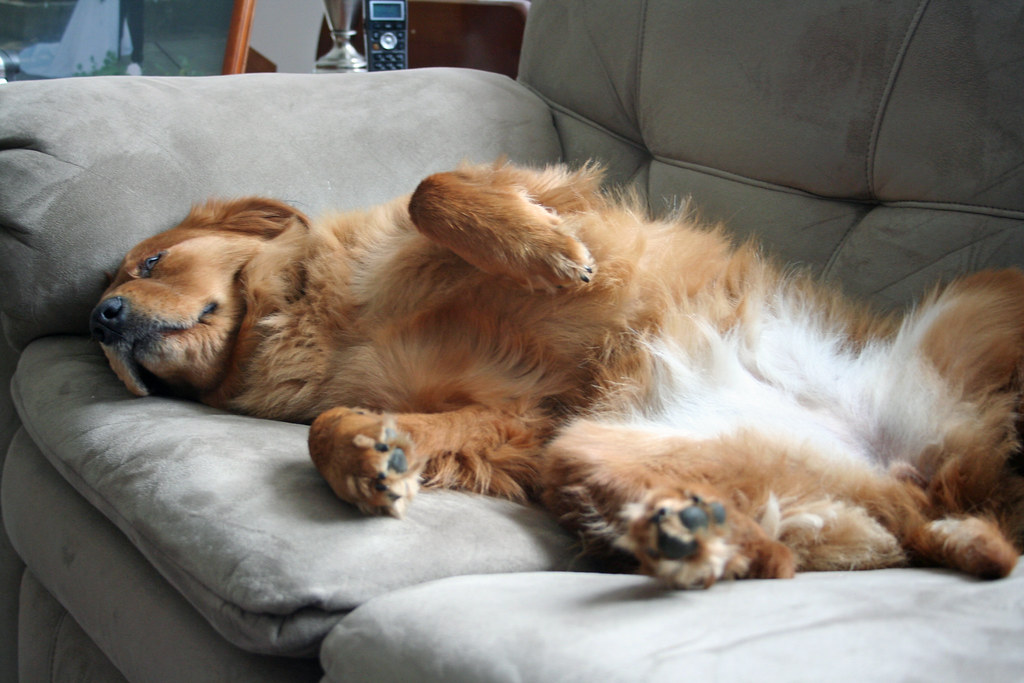
Flickr
If your dog has claimed the best spot on the couch or even your bed, and you find yourself relegated to a small corner or the floor, there’s a chance your dog is in charge. The alpha dog typically lays claim to the prime real estate, as they view themselves as the leader of the pack. This doesn’t just apply to couches either—if your dog takes over your personal space or even demands attention from you in the form of lap time, it’s another sign they’re asserting dominance. This behavior could mean your dog feels entitled to the best, while you’ve unknowingly accepted the lesser role. It’s important to set boundaries and encourage your dog to understand that respect for personal space goes both ways.
2. Your Dog Controls the Walk
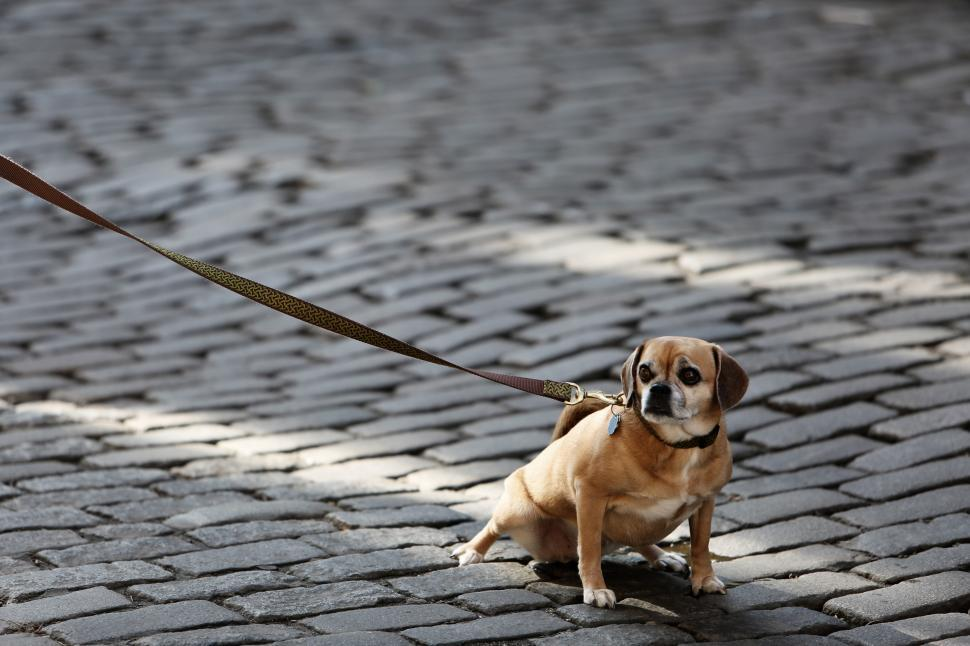
Freerange Stock
If your dog is constantly pulling you on walks, stopping whenever they please to sniff around, or even dictating the route, it’s a clear sign of alpha behavior. Alpha dogs naturally take the lead, not only in their pack but in every situation. They’ll walk ahead of you, often dictating the pace and direction, while you find yourself trying to keep up. If your dog leads the walk with little regard for your commands, this is a sign that they are the one calling the shots. This behavior can be managed by incorporating leash training and leadership cues, but for now, it’s an indicator that your dog believes they are the dominant one on outings.
3. Your Dog Eats First (And Often Gets the Better Treats)
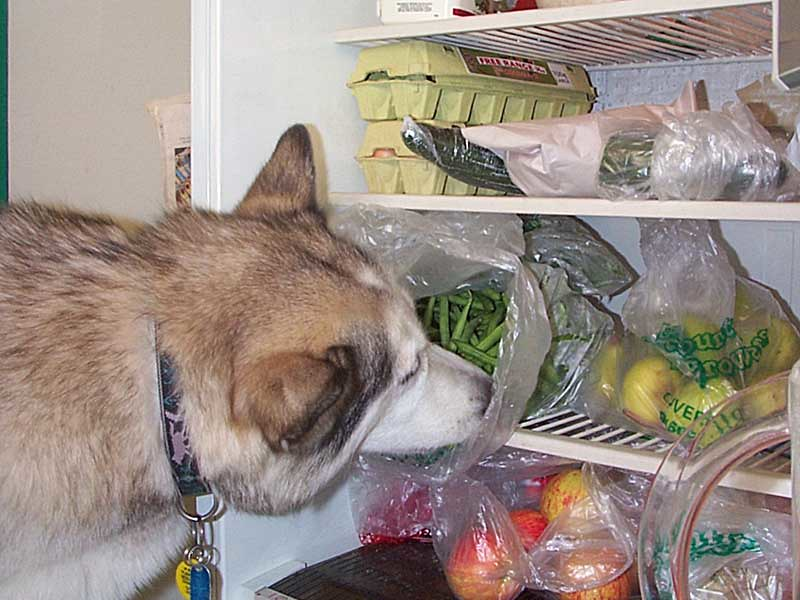
Flickr
One of the most classic signs that your dog sees itself as alpha is its insistence on eating first and sometimes even stealing food or getting the best treats. Traditionally, alphas in a pack would eat first, establishing their status. If your dog demands to eat before you, or if you find yourself feeding them while you eat last, it’s an indication of their perceived leadership position. Alpha dogs may also become possessive over food, guarding it from others, and even exhibiting signs of entitlement when it comes to treats. This is a clear sign that your dog believes they are the head of the pack, and you’re there to cater to their needs.
4. Your Dog Gives You the “Stare”

GetArchive
Dogs use eye contact to communicate, and when your dog stares at you without breaking eye contact, it’s a display of dominance. Alphas use eye contact to assert control over the pack, and if you find yourself on the receiving end of an unyielding gaze from your dog, it might be their way of telling you that they’re in charge. The stare is often used when they’re about to challenge your authority, like when you ask them to do something they don’t want to do. While it might seem cute, this behavior actually signals their belief that they are the leader in your relationship. Breaking the stare or redirecting their focus is one way to reset the balance.
5. Your Dog Refuses to Come When Called
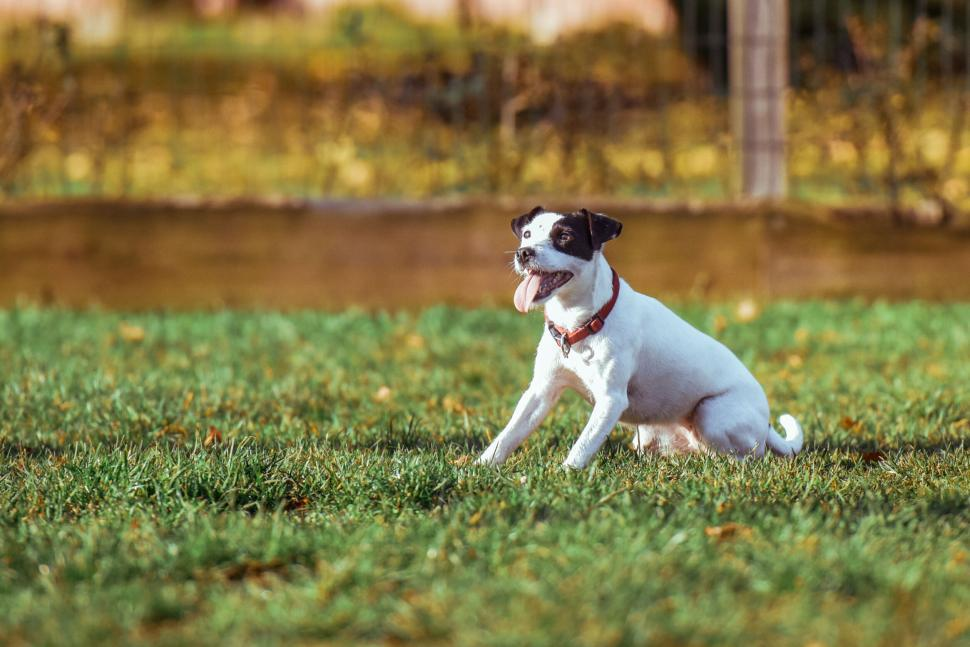
Freerange Stock
An alpha dog is often selective about when and how they respond to commands. If you’re constantly calling your dog and they refuse to come, it’s a sign that they view themselves as the leader of the pack. Alpha dogs will choose when they want to follow instructions, and they often ignore their owner’s calls as a way of asserting independence. If you find that your dog repeatedly ignores you, walks away, or simply doesn’t come when called, it’s a clear sign that they’re in charge. Training and establishing clear, consistent boundaries can help you take back some control in this scenario.
6. Your Dog Guards You or Your Belongings
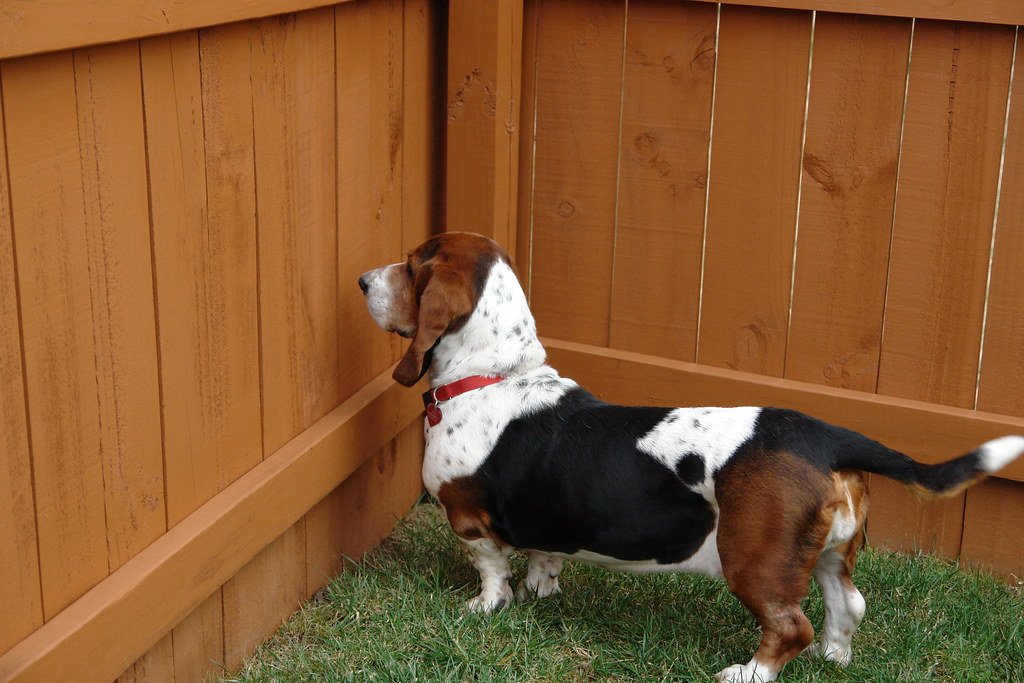
Flickr
If your dog shows signs of possessiveness over you or your possessions—such as guarding your space, growling at strangers, or even other pets—that’s a sure sign they see themselves as the alpha. The alpha dog is responsible for protecting the pack and ensuring that resources (including their human) are safe and under their control. If your dog gets protective over you or objects like food, toys, or even your phone, they are exhibiting behavior associated with dominance. Setting boundaries and reinforcing calm behavior around possessions is important to establish a more balanced dynamic.
7. Your Dog Interrupts Conversations
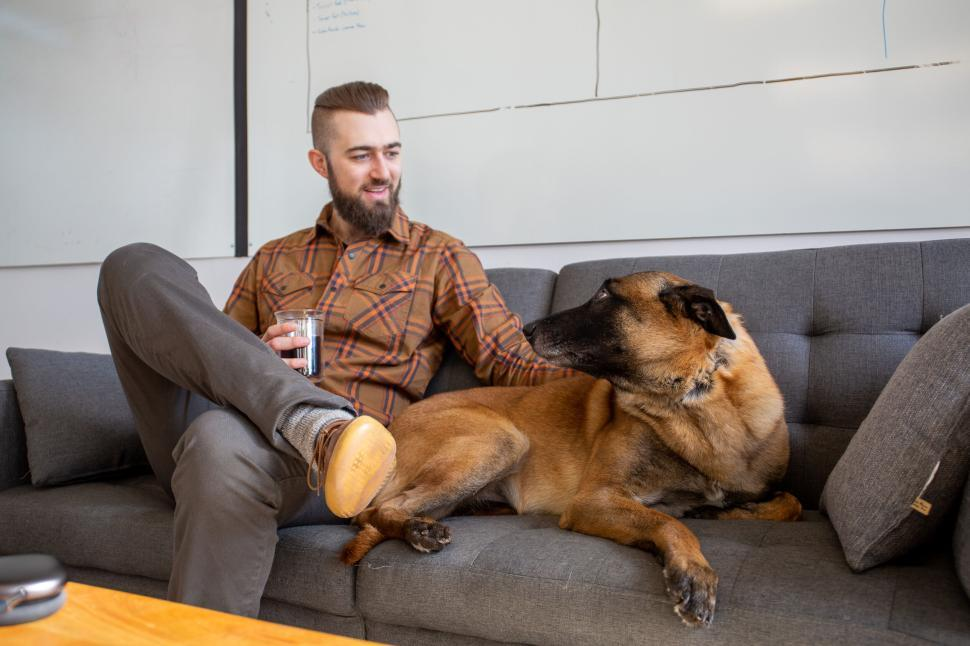
Freerange Stock
Does your dog constantly demand attention when you’re talking to someone or trying to focus on something else? This behavior is a form of asserting dominance. Alpha dogs believe they deserve the spotlight at all times, even if you’re trying to have a conversation or engage in an activity. If your dog interrupts by jumping up on you, pawing at you, or barking until you give them attention, it’s a sign that they expect you to put them first. This constant need for attention may make you feel like you’re working around their demands. Setting clear boundaries about when your dog can receive attention can help restore balance to the relationship.
8. Your Dog Will Not Move from a Doorway or Entrance
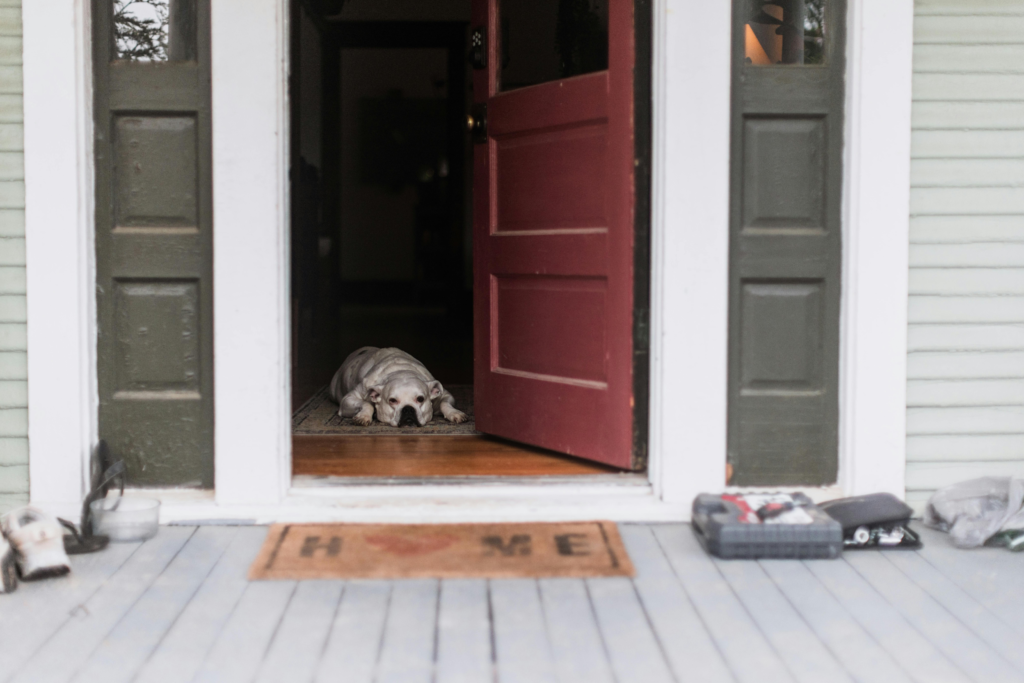
Pexels
Dogs who act like they own the house will often take control of doorways and entrances. If your dog frequently blocks the door when you’re trying to pass, or if they refuse to move when you need to get through, this is an alpha behavior. The dominant dog establishes themselves as the leader by claiming the entryway, which is often seen as a point of control. When your dog refuses to move or stands in your way, they are signaling their perceived dominance. You can train your dog to respect space and move out of your way, but in the meantime, it’s a sign of their belief in being the top dog in the household.
9. Your Dog Demands Constant Attention
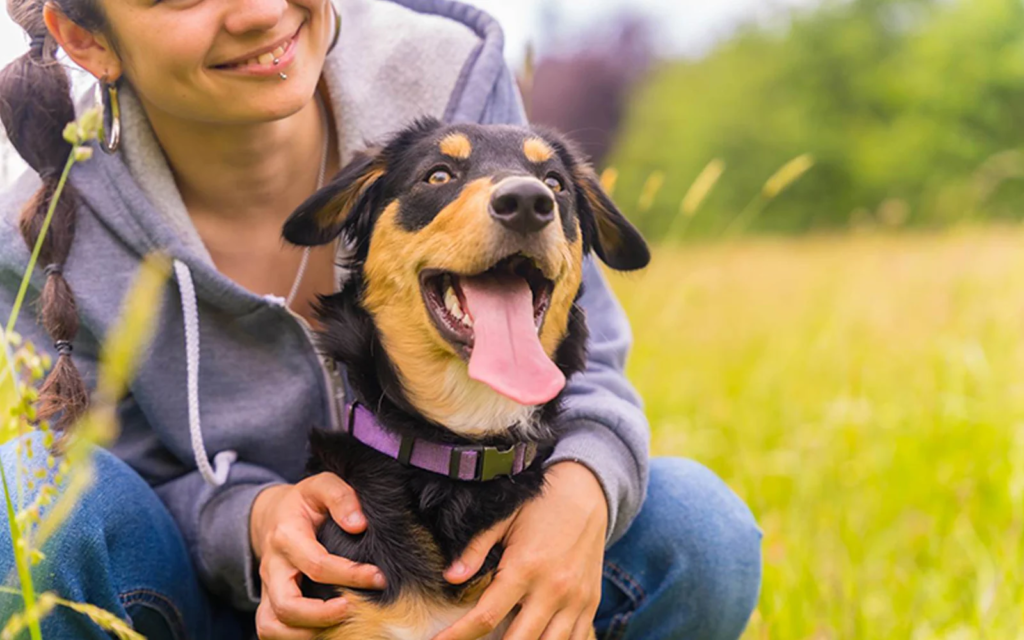
FMT
Is your dog always insisting on being the center of attention, whether it’s by pawing at you, jumping on you, or following you around? An alpha dog demands attention, believing they deserve it because of their rank in the pack. If your dog is always looking for affection or demanding playtime, and you often drop what you’re doing to cater to them, they’re showing signs of dominance. An alpha dog expects you to give them undivided attention, often ignoring your needs or requests in the process. It’s important to set limits on how much attention they receive to avoid reinforcing this behavior.
10. Your Dog Refuses to Share Its Toys

PICRYL
A classic sign of an alpha dog is refusal to share resources, including toys, food, or even your personal space. If your dog aggressively guards their toys or growls when other pets or people approach, they are establishing their dominance. Alpha dogs view toys and treats as their property, and they expect to have first dibs on anything of value. If your dog hoards toys or refuses to let others play with them, it’s a clear sign that they believe they should be the only one in charge of these resources. Establishing a sharing routine through training can help mitigate this behavior.
11. Your Dog Interrupts Your Activities

PickPik
If your dog constantly interrupts you when you’re working, reading, or engaging in any activity, this can be a sign they think they are the most important thing in the house. Alpha dogs want to be the center of attention and will often interrupt to make sure you know it. Whether it’s nudging you for attention, pawing at your face, or trying to climb on you, your dog is asserting its dominance over your time. Setting boundaries by providing structured attention and training will help your dog learn when it’s appropriate to seek interaction.
12. Your Dog Initiates Playtime (And Decides When It’s Over)
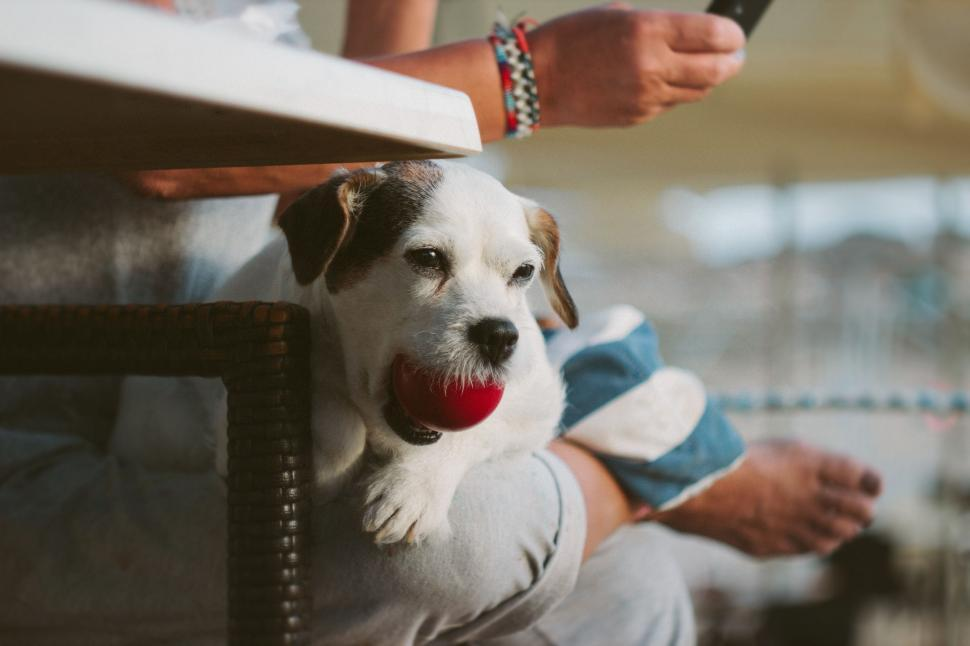
Freerange Stock
Alpha dogs take charge of playtime and often decide when it starts and ends. If your dog brings you toys, expects you to play, and even gets upset when playtime stops, they may be showing dominance. They understand the power they hold over your time and energy and use it to their advantage. Whether they demand tug-of-war or chase, they often control the duration of the play, leaving you to follow their lead. Learning to set limits during playtime can help your dog understand that fun has boundaries.
13. Your Dog Paces or Stands Over You
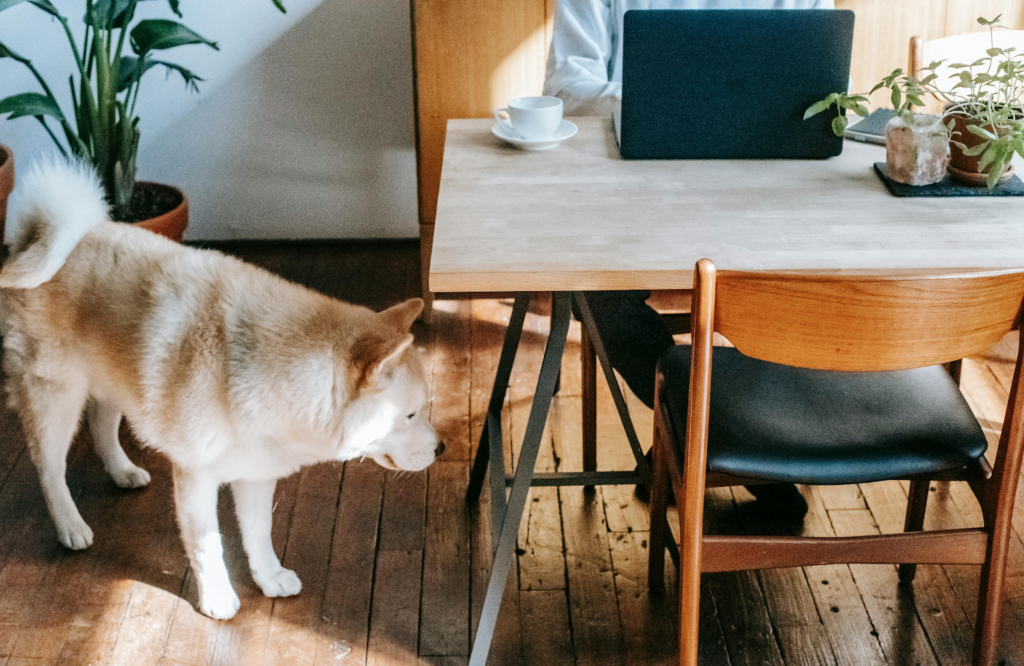
Pexels
If your dog frequently paces around you, especially when you’re sitting down, or stands over you in a dominating position, this could be a sign they see themselves as the leader. Alpha dogs will often stand tall, looking down on you to remind you of their position in the pack. They may also pace when they’re unsure of what’s happening, but the behavior is still rooted in their desire to control the situation. If your dog uses this posture to assert dominance, training and reinforcing calm, submissive behavior will help reset the balance.
14. Your Dog Demands Access to the Bed

iStock
If your dog insists on sharing your bed or claims it as their own, it’s a sign of alpha behavior. Dogs naturally sleep in positions of power, with alphas taking the best spots. If your dog constantly jumps onto your bed or takes over your side, they may be asserting their dominance in the household. This is especially true if you feel uncomfortable asking them to leave or if they become possessive of the space. Setting boundaries around your bed can help reinforce your role as the leader.
15. Your Dog Ignores Other Pets in the Household
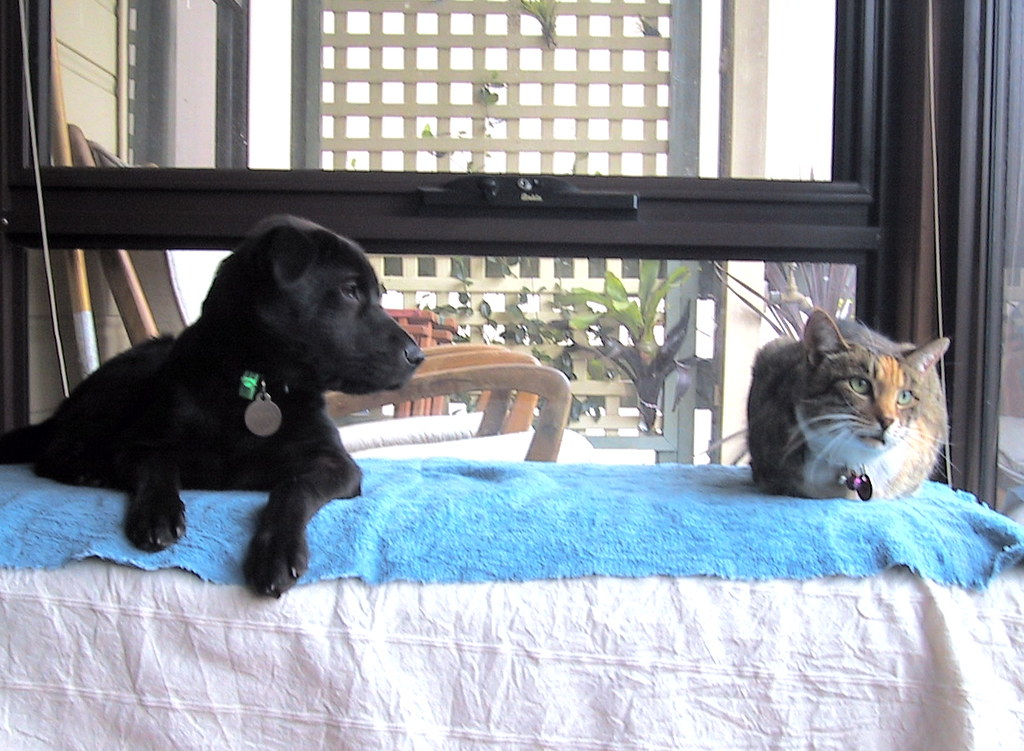
Flickr
If you have other pets in your home and your dog consistently ignores or asserts control over them, it’s another indication of alpha behavior. Alpha dogs often take charge of the household’s resources, which includes food, toys, and even attention from their humans. If your dog disregards the other pets and demands everything for themselves, it’s a sign that they believe they’re the top dog in the house. Teaching them to respect the boundaries of other animals can help balance the pack hierarchy and reinforce a healthy relationship between all your pets.


